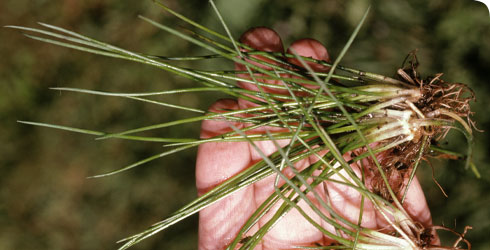Isoetes biafrana
Isoetes biafrana was described by former Museum scientist Arthur Hugh Alston in 1956, and the type specimen is held in the Museum’s cryptogamic herbarium, as are several other specimens of Isoetes biafrana.
It is only found in 2 localities in west Africa in seasonal pools, springs and submerged at lake margins.
Like many species in tropical countries, Isoetes biafrana is only known from a very small area. Now, approximately 50 years after it was first described, it is threatened with extinction.
Isoetes is a genus of small, often aquatic, plants collectively known as quillworts because of the hollow base to their leaves, like a quill.
They look like short tufts of tough grass, although in fact they are not flowering plants at all, but are the modern-day survivors of a group of plants that was previously more diverse, and much more dominant, many millions of years ago.
Species detail
-

Taxonomy
Isoetes plants look like short tufts of tough grass and their fossil record dates back to the Triassic Period. Find out what gives them their common name, the quillworts.
-

Distribution and conservation
Isoetes biafrana is only known from 2 localities in west Africa and is often found submerged at lake margins. Find out what threatens its survival.
-

Biology and behaviour
This species has developed a type of photosynthesis that allows the plant to survive submerged on lake bottoms, and is common in desert plants.Find out more.
-

Conservation
Isoetes biafrana has been assessed as vulnerable due to its restricted range and limited number of locations. Find out what threatens its survival.
Images
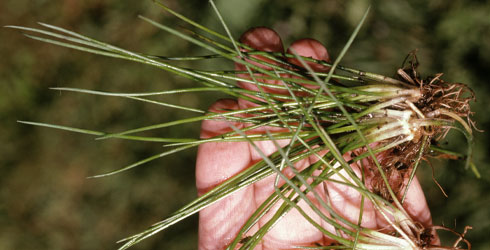
soetes biafrana
© Martin Cheek RBG Kew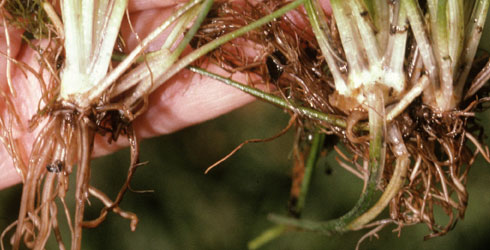
Isoetes biafrana
© M Cheek RBG Kew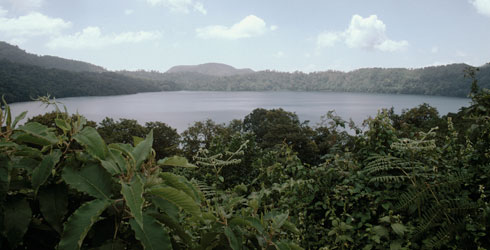
The lake bottom habitat of Isoetes biafrana in Lake Oku.
© Martin Cheek, RBG Kew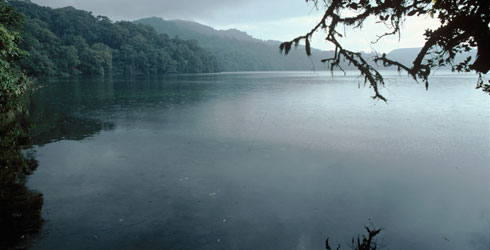
The lake bottom habitat of Isoetes biafrana in Lake Oku.
© Martin Cheek, RBG Kew.Author

Dr Neil Brummitt
Researcher focusing on understanding the distribution of plant diversity on global, regional and local scales.
A word from the author
"Isoetes biafrana is one of the species included in the Sampled Red List Index Project to measure the 2010 Biodiversity Target of the Convention on Biological Diversity, and to monitor the global status of plant species for setting future conservation priorities. More than 1 in 5 plant species worldwide are threatened with extinction."
Toolbox
Reference
The plants of Mount Oku and the Ijim Ridge, Cameroon: a conservation checklist. Edited by Martin Cheek, Jean-Michel Onana and Benedict John Pollard. Royal Botanic Gardens, Kew, 2000.
